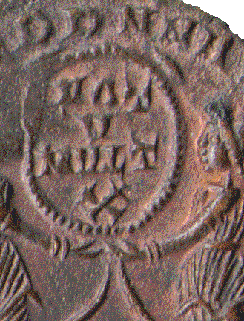 Contents -
Previous Article -
Next Article
Contents -
Previous Article -
Next Article
According to the early Greeks, the only way to do history was to tell it, or read it aloud. You didn’t read it silently to yourself until that became the custom much later. History was an epic poem to be shared with others. Homer's Iliad and Odyssey are usually the first works that come to mind when we think of classical Greek epic poetry. These were actually more popular with the Romans than they were with the Greeks whose heroes the stories are about. In fact, when Rome went searching for a history of her own and found very little of a suitably heroic nature in her own heritage, the writers of Roman history invented their own hero, Aeneas, who fled the burning ruins of Troy carrying his father on his back. Emperor Augustus actually asked the Roman poet Virgil to write the Aeneid, Rome's first and best loved epic poem in which much of Roman "history" was generated on the spot by the fertile mind and able pen of the famous poet. Quintillian, another scholar from about the time of Augustus, says that,
"History is very near to poetry, and may be considered in some sense to be poetry in prose."Another one of the purposes of history, according to the Roman way of thinking, was to instill a sense of patriotism in the reader and to teach a moral. One of the most valued traits in the character of the Roman man was GRAVITAS, or a sense of seriousness of purpose, both in his own life and in the affairs of state. The Romans took their heritage very seriously and believed that their values were far superior to the values of the peoples with which they came into contact. Though they considered the Greeks to be highly learned and respected and coveted their culture, they also thought the Greeks to be too frivolous and lighthearted, without enough gravitas of their own. Syrians and other Easterners were lazy, spoilt by the easy, comfortable living in their ancient and richly opulent cities. They felt the same way about Egyptians, who possessed a mixture of Greek and Egyptian culture at that time. Germans and Northern peoples were ignorant, wild, uncultured, unkempt savages with long, tangled hair who made good soldiers if you could tame them or break them. Besides, they were too big, too white, and too blond, and those big ones with red hair looked the part of real barbarians to the cultured Roman eye. The Romans, by contrast, must maintain their superior status as educated and industrious masters of an unruly world who brought the gift of good government to the peoples who were granted the favor of being conquered by Rome’s mighty legions! Hence, an important reason that history was considered a vital part of a young Roman’s education was to teach him or her how to effectively govern and avoid the mistakes of the past. Historical discussions and debates were often the subject of conversation at dinner parties hosted by wealthy and powerful Romans. The Roman attitude towards history and their own important role in making it can be summed up by the following quote from Virgil's Aeneid.
"Remember, Roman, that it is for thee to rule the nations. This shall be thy task, to impose the ways of peace, to spare the vanquished, and to tame the proud by war."Indeed, the Romans took their history and their favorite historian at his word and did exactly that for the next four hundred years.
Go to next article:
Go back to previous article: